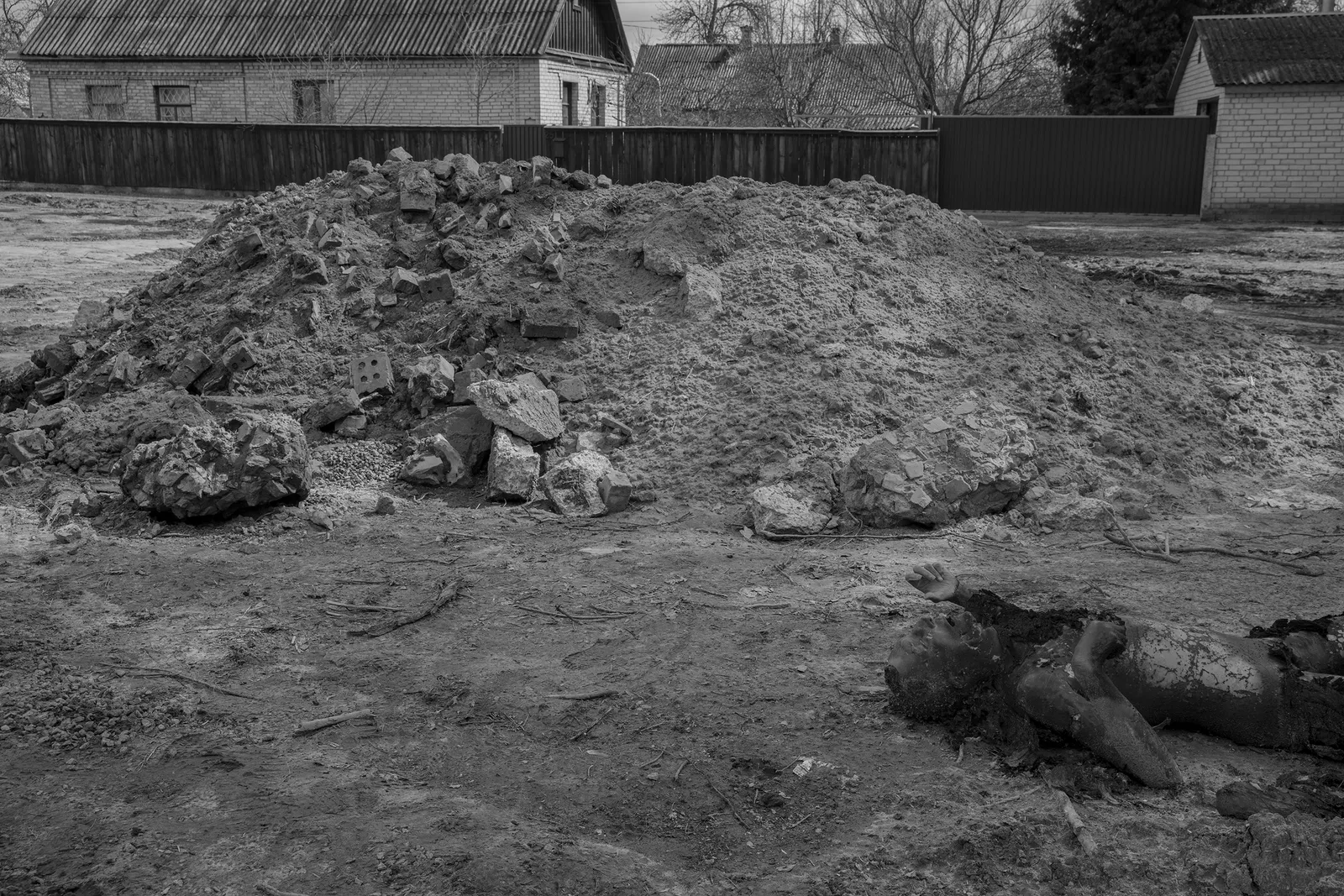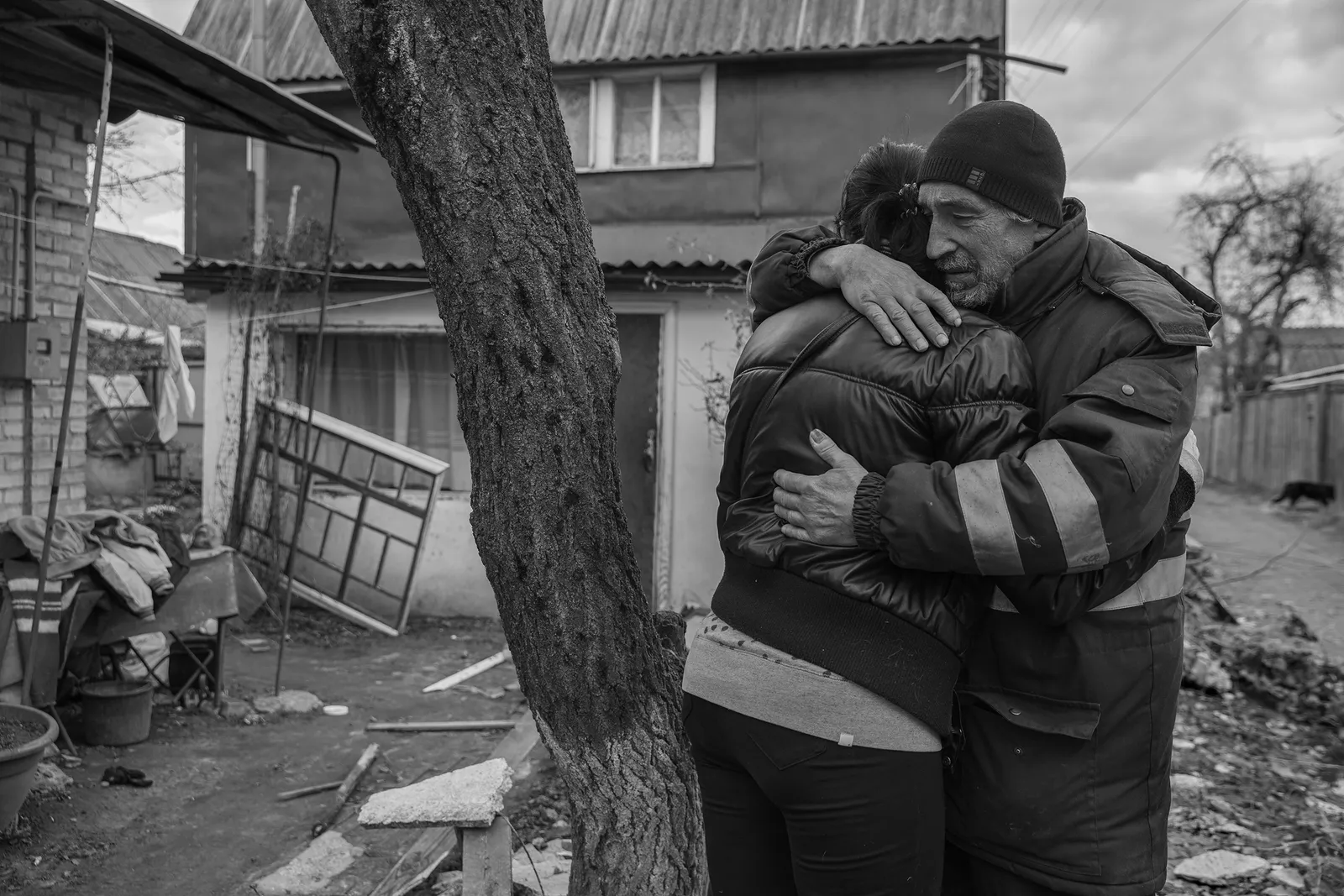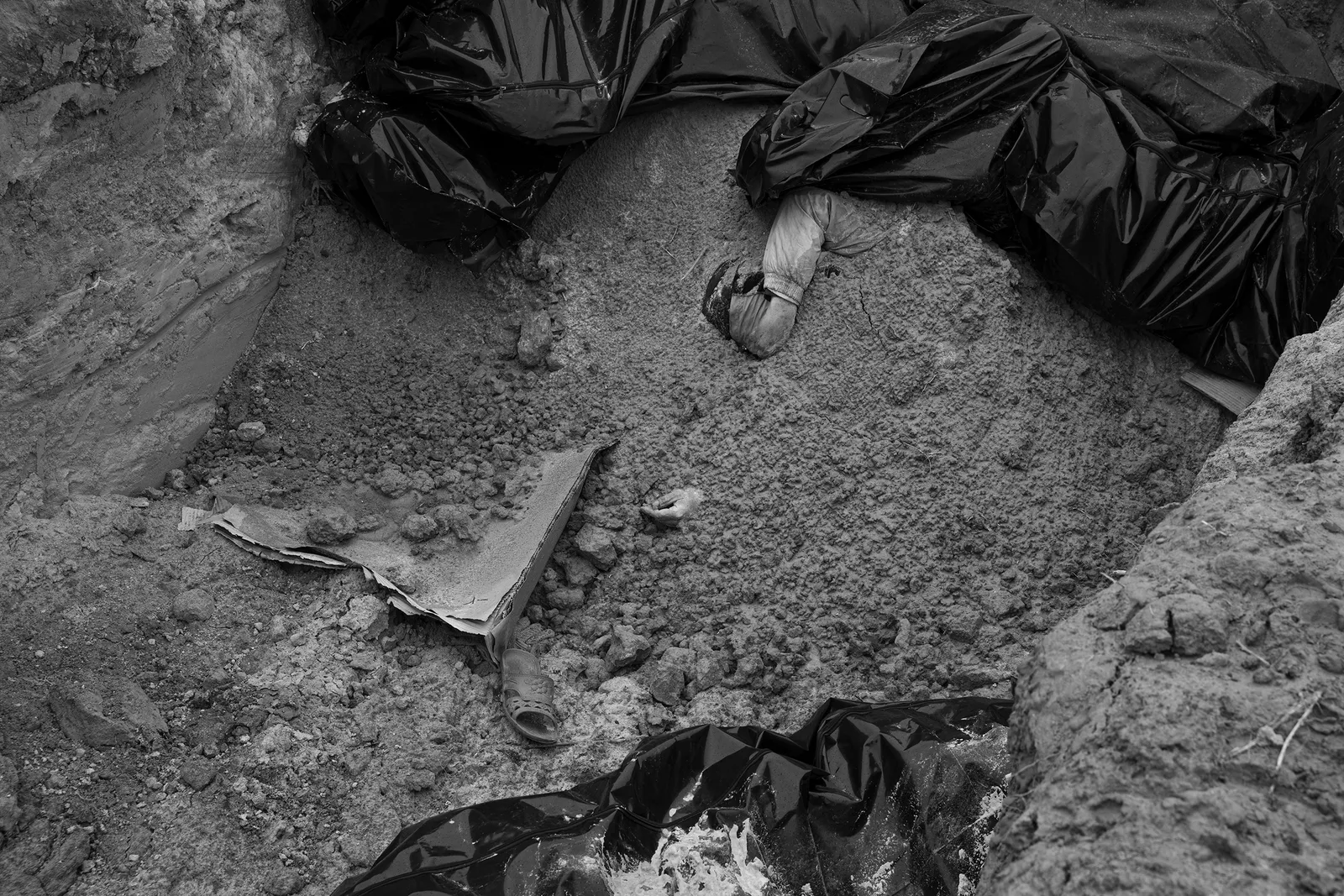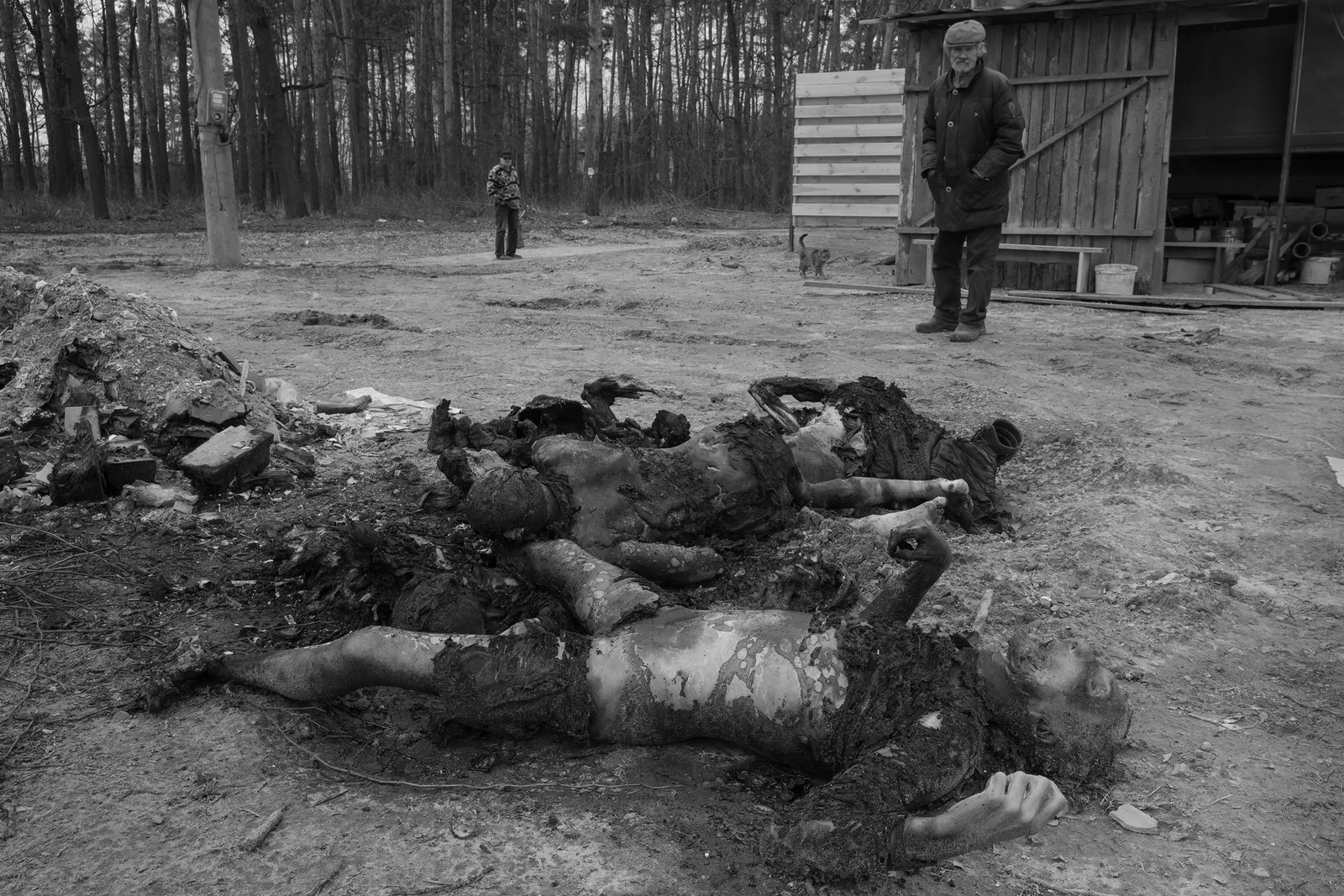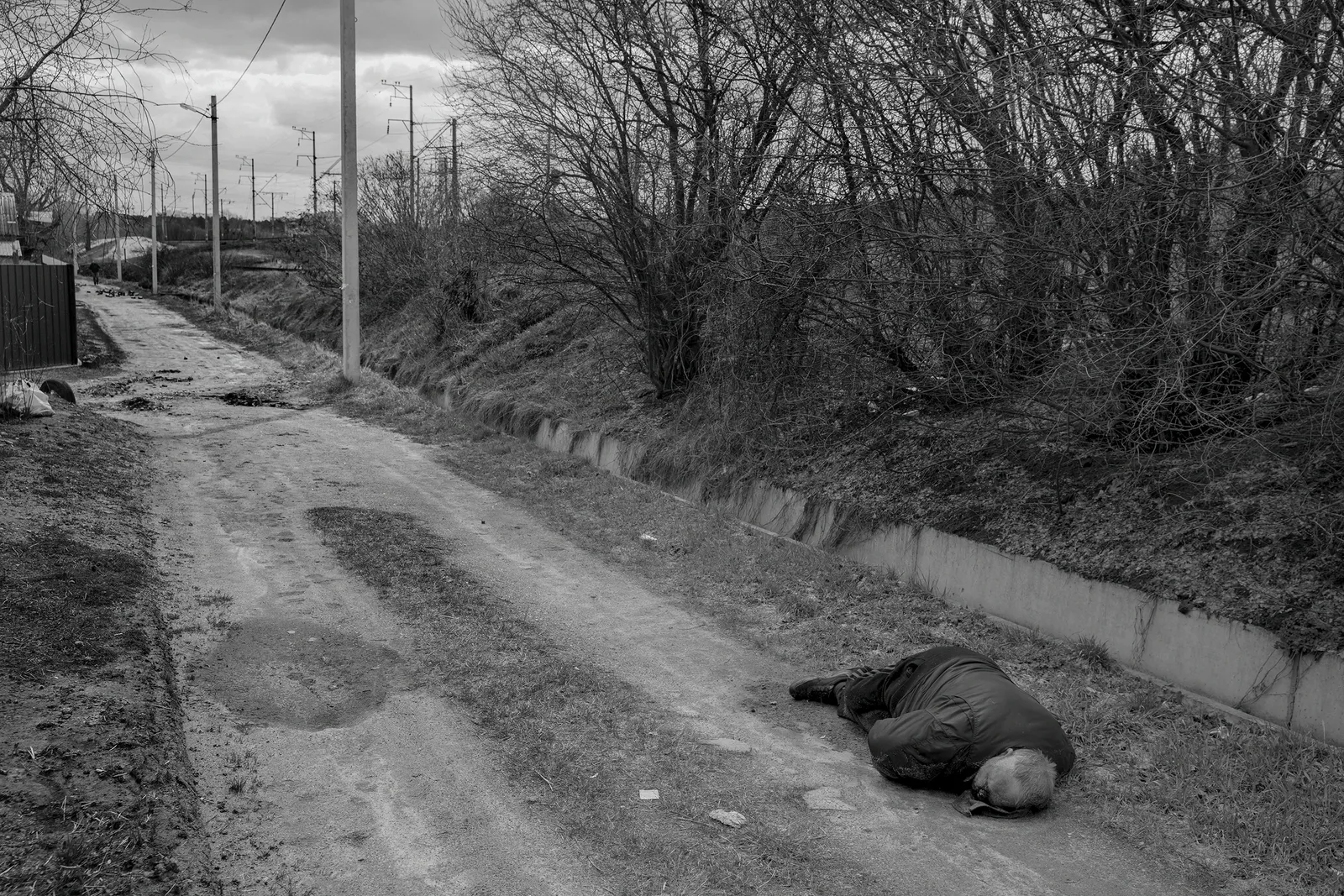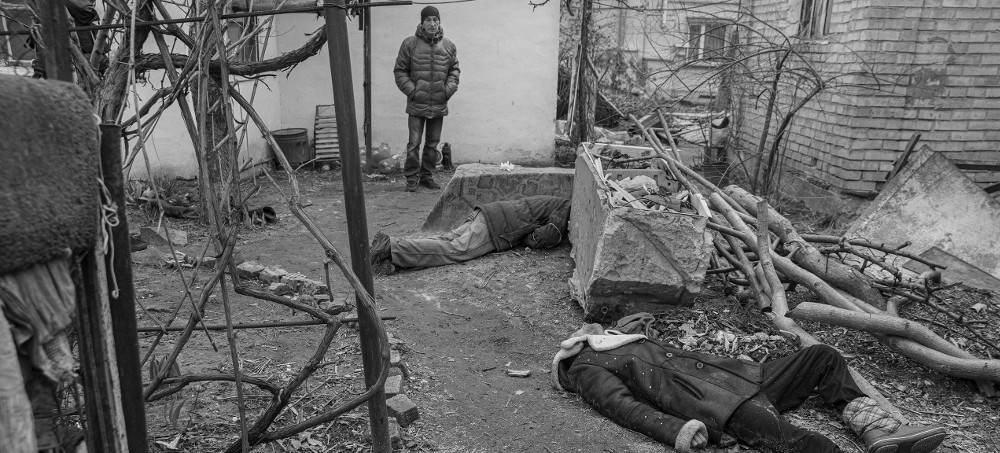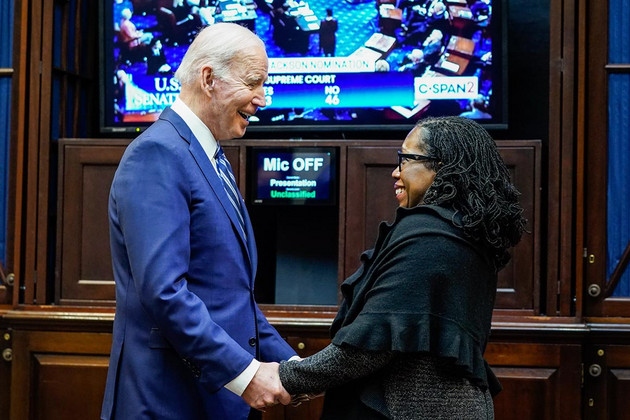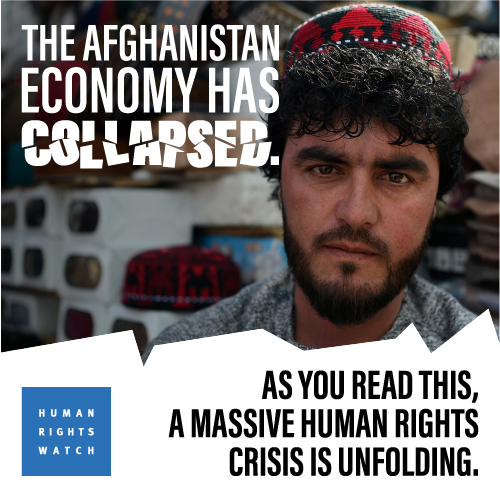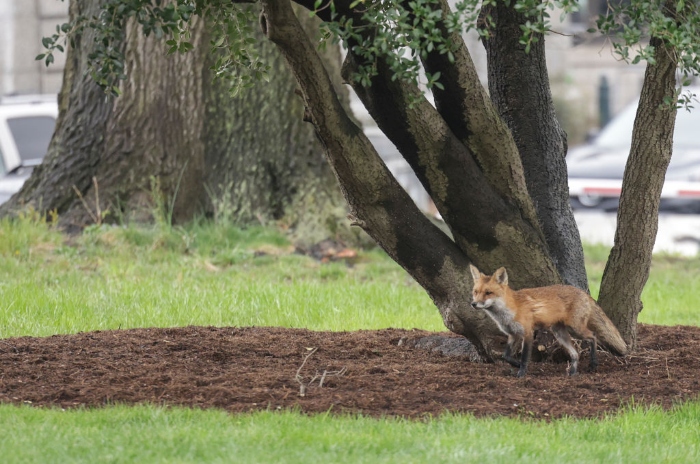
07 April 22
Give Us a “Fighting Chance”
We are holding our own right now along side of high-powered political fundraising machines using very sophisticated methods … and we are holding our heads above water.
If you come here, if you believe what we do makes a difference, help out with what you can afford.
In peace and solidarity.
Marc Ash
Founder, Reader Supported News
Sure, I'll make a donation!
If you would prefer to send a check:
Reader Supported News
PO Box 2043 / Citrus Heights, CA 95611
Follow us on facebook and twitter!
Update My Monthly Donation

07 April 22
Live on the homepage now!
Reader Supported News
WHY ARE YOU HERE? Why have you chosen to be and stay here with Reader Supported News? It means something to you, no? This organization is underfunded … Because 1% of the subscribers can’t bring themselves to respond to the fundraising appeals!? That’s crazy. “Be here,” we need you.
Marc Ash • Founder, Reader Supported News
Sure, I'll make a donation!
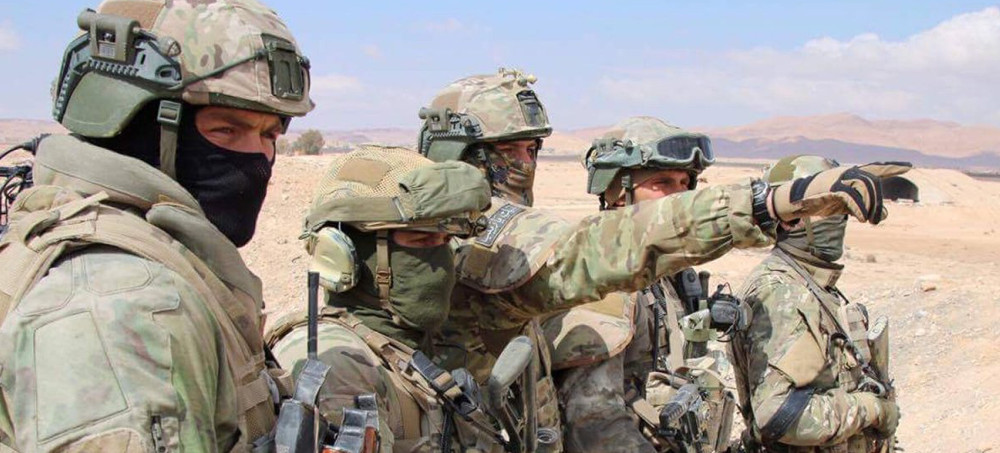
Robin Wright | Will Mercenaries and Foreign Fighters Change the Course of Ukraine's War?
Robin Wright, The New Yorker
Wright writes: "For the past four years, the U.S. has tried to nab Yevgeny Prigozhin, a dour and balding Russian oligarch often photographed somewhere close to Vladimir Putin. He's been dubbed Putin's chef."
At a critical strategic juncture, non-state actors threaten to complicate the conflict.
For the past four years, the U.S. has tried to nab Yevgeny Prigozhin, a dour and balding Russian oligarch often photographed somewhere close to Vladimir Putin. He’s been dubbed Putin’s chef. His companies cater Kremlin events and allegedly finance the Russian leader’s political and military escapades. In 2018, a U.S. federal court issued an arrest warrant for Prigozhin for, among other things, “conspiracy to defraud the United States.” It charged that the restaurateur turned billionaire, through his funding of the Internet Research Agency, “oversaw and approved” widespread meddling in the U.S. political system, including in the 2016 Presidential election. Last year, the F.B.I. put Prigozhin on its most-wanted list and offered a quarter of a million dollars for tips leading to his arrest. The U.S. Treasury has also sanctioned Prigozhin for running disinformation campaigns through a network of front companies in other elections in Africa, Asia, and Europe. Last month, the U.S. imposed additional sanctions on Prigozhin (along with his wife and two children). “We continue to impose very severe economic sanctions on Putin and all those folks around him,” President Biden said at the announcement.
Prigozhin is in the spotlight again this month as Putin, facing humiliating military setbacks in Ukraine, looks for ways to regroup on the battlefield. U.S. and British officials say that Russia is now scrambling to mobilize mercenaries from the notoriously opaque Wagner Group, which is reportedly financed by Prigozhin. NATO recently estimated that up to fifteen thousand Russians have been killed in just the first four weeks of the war—about the same as the Soviet Union lost during its decade-long invasion of Afghanistan. Russia is expected to redirect more than a thousand mercenaries in the Wagner Group, including senior leaders, from wars on other continents to Ukraine, the British Ministry of Defense said, last week. Because of the “largely stalled invasion,” it added, “Russia has highly likely been forced to reprioritise Wagner personnel for Ukraine at the expense of operations in Africa and Syria.”
Since Putin launched his attack, both Ukraine and Russia have boasted of staggering numbers of foreign volunteers and mercenaries willing to join the biggest conflict in Europe since the Second World War. On March 6th, Ukraine announced that some twenty thousand people from fifty-two countries had applied to fight in the newly formed International Legion of Territorial Defense of Ukraine. They reportedly include Americans, Canadians, and several European nationalities. “The whole world today is on Ukraine’s side, not only in words but in deeds,” the Foreign Minister, Dmytro Kuleba, told Ukrainian television.
Days later, the Russian Defense Minister, Sergei Shoigu, claimed that some sixteen thousand men from the Middle East had applied to fight for Russia. “As for the mercenaries from all over the world being sent to Ukraine, we see that they do not conceal it, the Western sponsors of Ukraine, the Ukrainian regime, do not hide it,” Putin said, in a meeting with his top security advisers. “That’s why if you see that there are people who are willing to come as volunteers, especially not for money, and help people residing in Donbas, well, we need to meet them halfway and assist them in moving to the combat zone.”
The infusion of outsiders and “irregular forces” could further complicate an already messy conflict, according to a report released on Monday by the Soufan Center, a nonprofit, global-security research group. “The battlefield in Ukraine is incredibly complex, with a range of violent non-state actors—private military contractors, foreign fighters, volunteers, mercenaries, extremists, and terrorist groups—all in the mix,” it concluded. In the lexicon of war, volunteers who join a rebel force or militia are typically called “foreign fighters,” while mercenaries are generally employed by a state and fight for profit or personal gain. The U.S. and the U.N. deemed the tens of thousands who joined ISIS in Syria and Iraq foreign terrorist fighters, not mercenaries. But such definitions are tricky—and easily contested. The Russian Defense Ministry has referred to any foreigners caught in Ukraine’s International Legion as mercenaries—who will not be eligible for protections as prisoners of war under the Geneva Conventions. “At best, they can expect to be prosecuted as criminals,” the Defense Ministry announced. To drive home the point, on March 13th, Russia launched missiles at a base near Ukraine’s border with Poland that it described as a “training facility for Western mercenaries.”
The looming question at this strategic juncture of the war is how—or whether—foreign fighters and mercenaries will alter the conflict’s course. Experts believe that the estimates by both Ukraine and Russia are high, more a wish list than reality. By mid-March, hundreds of foreigners showed up to fight for Ukraine, not thousands. Over time, foreign fighters have the potential to be “force multipliers,” Colin P. Clarke, a senior research fellow at the Soufan Center who co-wrote the report, told me. “But that’s in the rare case that you have somebody that’s highly trained and motivated,” such as former member of U.S. or British special forces. “These are people that actually know irregular warfare, that can really have an impact on strategy,” he said.
Others who come often serve as “cannon fodder,” and cause “more harm than they’re worth because of the lack of experience, because they’re essentially war tourists that are going there for a selfie and a story,” Clarke told me. Some have complained about weapons shortages, and the language gap has hindered integration with Ukrainian forces on the front lines. The Ukrainians, Clarke added, have tried to discourage volunteers without military experience, partly because they risk being captured and exploited by Russian propaganda. The State Department has warned Americans not to travel to Ukraine—for any reason—since they face “the very real risk” of capture, criminal prosecution, or death. (Some foreign fighters—“jarred by the horrors and brutalities of war”—have already opted out of Ukraine, the Soufan Center reported.)
Under the Russian constitution, the use of private military companies is technically illegal. The Kremlin denies that the Wagner Group even exists. Prigozhin has also denied ties to the organization, although in 2021 the European Union formally claimed that he financed it. Putin has reportedly made mercenaries part of Moscow’s military strategy since it first intervened in Ukraine, in 2014, to seize Crimea, and to support the pro-Russia separatists in Donbas. The Wagner Group was created to aid, stand in for, and provide plausible deniability to Russian forces. Moscow eventually recruited more than thirteen thousand fighters from several countries to fight in Donbas, according to the Soufan Center.
Putin’s reliance on Prigozhin, the Wagner Group, and other private military contractors has since “exploded,” with “suspected or proven” military operations in thirty countries on four continents, from Venezuela to Libya and Afghanistan, according to the Center for Strategic and International Studies. The Wagner Group has recruited, trained, and deployed operatives worldwide to project power, undermine the U.S., and increase Moscow’s influence using lower-profile contractors. In 2021, the Council of the European Union alleged that the Wagner Group has also been used “to fuel violence, loot natural resources and intimidate civilians in violation of international law.”
Within the first ten days of Russia’s invasion, it deployed an estimated thousand mercenaries from the Wagner Group, a U.S. official told me. But they quickly suffered losses, too. By early March, about two hundred mercenaries, some of whom belonged to the group, had already died on the battlefield, the official said. Russia is also recruiting in Syria, where its forces have propped up President Bashar al-Assad since 2015. Syria’s eleven-year civil war has produced informal local militias as well as battle-hardened soldiers who earn as little as fifteen to thirty-five dollars monthly; Russia is reportedly promising a thousand dollars or more a month to fight in Ukraine. The Syrians alone, however, may not make a strategic difference, experts say. They don’t speak the language or know the terrain in Ukraine. The Assad regime needed its own foreign fighters, from militias in Lebanon and Iraq, as well as strategists from Iran and Russia.
The Russian military seems to be gambling on outside help. As of mid-March, “nearly 90% of the Wagner Group’s manpower and resources have been moved from other theaters into Ukraine,” the Soufan Center reported. Yet Moscow’s recruitment of foreigners reflects desperation, Clarke told me. “They actually need those bodies to take the place of the conscripts that are dying in large numbers.” On Monday, the Pentagon said the Wagner Group’s contract soldiers were focussed on the Donbas as Russia shifts its attention from capturing Kyiv, the capital, to widening its hold in the resource-rich east and along the southern coastline. A different phase of the war has begun, with a growing array of players.
READ MORE
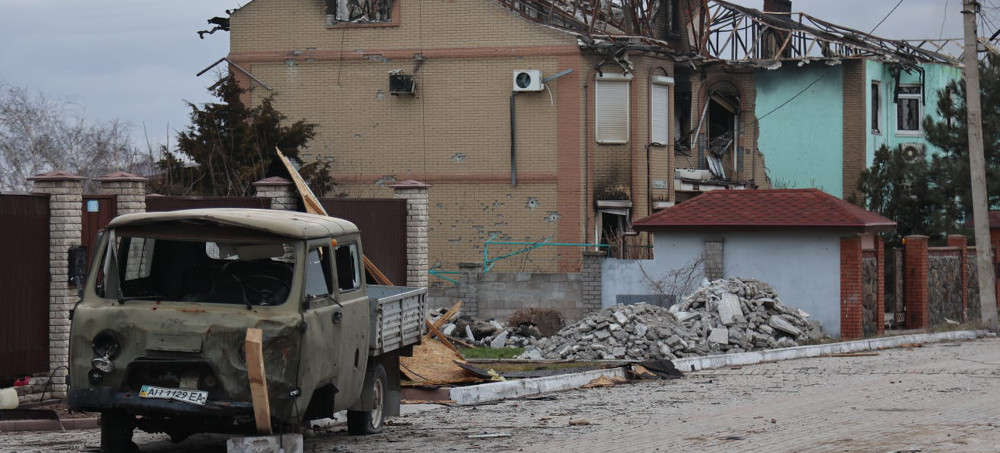 A view of devastation in the Ukrainian city of Mariupol under the control of Russian military and pro-Russian separatists, on April 4, 2022. (photo: Getty)
A view of devastation in the Ukrainian city of Mariupol under the control of Russian military and pro-Russian separatists, on April 4, 2022. (photo: Getty)
Russia Accused of 'Hiding' War Crimes in Mariupol With Mobile Crematoriums
Barbie Latza Nadeau and Allison Quinn, The Daily Beast
Excerpt: "As the Kremlin continues to insist Russian troops are not targeting civilians, overwhelming evidence to the contrary just keeps growing."
As the Kremlin continues to insist Russian troops are not targeting civilians, overwhelming evidence to the contrary just keeps growing.
Russian authorities have begun using mobile crematoriums in the besieged city of Mariupol in order to hide evidence of murdered civilians, the city’s mayor alleges.
In a lengthy post to Telegram on Wednesday, Vadym Boichenko said Russian military officials had reacted swiftly to “hide their tracks” after images of dead civilians littering the street in Bucha sparked international outrage over the weekend.
“After widespread international coverage of the genocide in Bucha, the top Russian leadership issued an order to destroy any evidence of the crimes of their army in Mariupol,” Boichenko said.
“The Russians left all the dirty work for collaborators. Eyewitnesses report that the [Russians] recruited local and 'DNR' terrorists to special brigades to clean up. They are collecting and burning the bodies of the residents of Mariupol who were killed as a result of the Russian invasion,” he said.
“The world has not seen a tragedy on the scale of Mariupol since the Nazi concentration camps. The Rashists have turned our entire city into a death camp,” he said, using a derogatory term for “Russians” that is a play on “fascists.”
“This is no longer Chechnya or Aleppo. This is the new Auschwitz and Majdanek. The world should help punish Putin's bigots,” he wrote.
Just hours before his alarming announcement, two civilians were killed by Russian forces in Ukraine’s Donetsk region on Wednesday as they were collecting humanitarian aid, according to local authorities.
“The place of distribution of humanitarian aid was shot up by Russian fascists with rocket artillery in Vuhledar,” Pavel Kirilenko, the head of the regional military administration, announced on Telegram.
Photos from the scene showed medics tending to several wounded people who lay on the ground amid the wreckage. At least two people were killed, and another five wounded, Kirilenko said.
The attack came as Kremlin spokesman Dmitry Peskov, in comments to Russian media, insisted with a straight face that Russian troops are not targeting civilians, despite growing evidence to the contrary.
His comments came after Ukraine’s Security Service released audio of what it said was an intercepted call between a Russian soldier and his commander. In the recording, the commander can be heard angrily ordering the soldier to shoot “everyone,” regardless of whether they are civilians or not.
“Yes, cut them all fucking down!” he said.
In the recently liberated town of Hostomel, in the Kyiv region, authorities said hundreds of civilians are still missing and feared dead after Russian forces decimated the area while they had control for 35 days.
Taras Dumenko, the head of the local administration, told Hromadske Radio on Wednesday that “more than 400 civilians have disappeared without a trace.”
“In Hostomel, there were not so many bodies found, further out in the villages of our community there were bodies found of those executed, and residents who were killed,” he said.
He went on to say authorities were informed of several killings of civilians, incidents that were confirmed with photo or video evidence, but that their bodies had yet to be found.
“But one must understand that the invaders also covered up the traces of their crimes,” he said.
Russian troops appeared to be more brazen in the town of Bucha, outside of Kyiv, where scenes of streets literally littered with slain civilians shocked the world this week. Bucha Mayor Anatoly Fedoruk detailed the horrors that unfolded there in comments to BBC on Wednesday, saying he had personally witnessed several killings.
“Three civilian vehicles were trying to evacuate towards Kyiv and were brutally fired upon. There was a pregnant woman whose husband screamed and begged [for them] not to shoot her, but she was just brutally shot,” Fedoruk said.
About 320 residents in total were killed, he said.
The harrowing new details come shortly after a Russian missile strike at a pediatric hospital in the southern Ukrainian city of Mykolaiv, with chilling images showing children’s toys near the scene of the attack.
In the parking lot, CCTV footage caught the moment the Russian missile struck an ambulance donated by the U.K. to the facility. Witness accounts by those who were there say at least one child and one man died and at least 60 others were injured. International condemnation—by now a daily chorus—has done little to deter the carnage.
Doctors Without Borders staff, who were there helping administer medical aid at the compound, which also includes a cancer center, say the windows of their vehicles were blown out in the bombings. “Several explosions took place in close proximity to our staff over the course of about 10 minutes,” Doctors Without Borders Ukraine chief Michel-Olivier Lacharité told Reuters. “As they were leaving the area, the MSF team saw injured people and at least one dead body.”
Ukrainian officials say at least 167 children have been killed since Vladimir Putin ordered the invasion on Feb. 24. A further 279 have been gravely wounded, and thousands more undoubtedly traumatized for life by what they have seen. At least 927 schools and other educational facilities have been damaged in the war so far, according to the Ukrainian prosecutor general’s office.
Near the capital of Kyiv, another suburb has been abandoned by Russian troops and another trail of suspected war crimes lies in their wake. Like the scenes in Bucha that horrified an already shocked world earlier in the week, images out of Borodianka revealed another nightmare.
A woman interviewed by CNN showed a corpse in her garden. The dead man’s pants were pulled down; he had a bag over his head and his hands were tied behind his back. “He was executed, gunshot to the head,” a Ukrainian police officer told CNN. Buildings in the shelled city have almost all been defaced with the letter V or Z, symbols of Putin’s “special military operation,” or codeword for war.
European leaders will meet on Wednesday to decide on new sanctions against Russia, which now look to be gradual rather than immediate as Europe’s dependency on Russian gas becomes increasingly clear with energy bill increases expected to top 400 percent in the coming months.
In the U.S., Chairman of the Joint Chiefs of Staff Gen. Mark Milley warned of a geopolitical disaster in the making. “The Russian invasion of Ukraine is threatening to undermine not only European peace and stability but global peace and stability that my parents and a generation of Americans fought so hard to defend,” he said. “We are entering a world that is becoming more unstable and the potential for significant international conflict is increasing, not decreasing.”
READ MORE
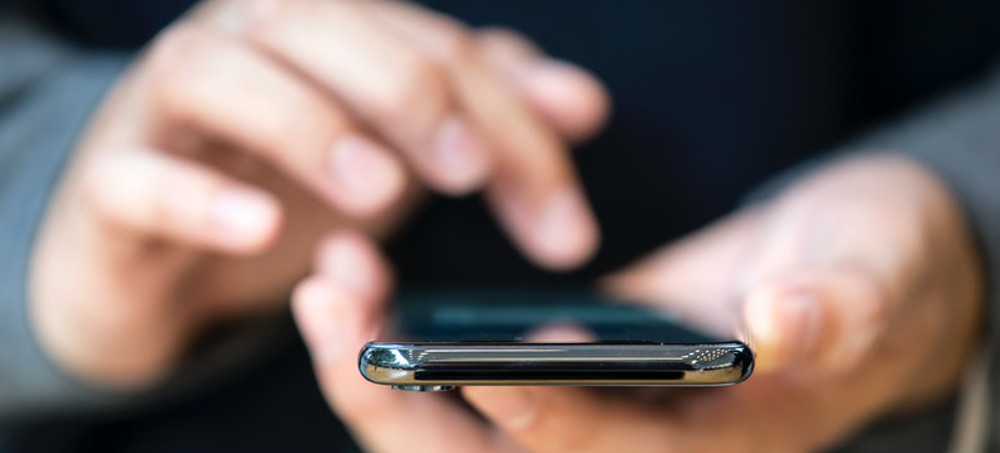 Apple has resumed allowing Russians to download an app run by supporters of jailed Kremlin critic Alexei Navalny. (photo: iStock)
Apple has resumed allowing Russians to download an app run by supporters of jailed Kremlin critic Alexei Navalny. (photo: iStock)
Apple Restores Opposition App to Its App Store in Russia
Joseph Menn and Greg Miller, The Washington Post
Excerpt: "Apple has resumed allowing Russians to download an app run by supporters of jailed Kremlin critic Alexei Navalny after criticism that it was acceding to unreasonable government demands for censorship."
The company had made it inaccessible in Russia last year after threats from the Russian government
Apple has resumed allowing Russians to download an app run by supporters of jailed Kremlin critic Alexei Navalny after criticism that it was acceding to unreasonable government demands for censorship.
As reported by The Washington Post last month, law enforcement agents had repeatedly threatened the top Apple and Google officials in Russia with arrest in September unless they removed Navalny’s “Smart Voting” app, which included more than a thousand endorsements of candidates for seats in Russia’s legislature.
Those demands came as voting was about to begin, and both companies complied. Google later reinstated the app for Android phones soon after the election, while Apple did not.
That changed this week, according to independent researchers and Navalny’s chief of staff, Leonid Volkov.
Apple spokesmen declined to comment on the decision.
The reversal comes amid escalating tensions between Russia and outside companies, many of which have withdrawn from the market or curtailed activities there since Russia invaded Ukraine. But civil liberties groups and American officials are pushing the other way, arguing that Apple and other tech companies provide ordinary Russians with the means to find independent news sources and to connect to activists and nonprofit organizations opposed to the war in Ukraine.
Apps are an especially critical form of communication in Russia now because the country’s censorship apparatus has not been able to block or modify content flowing from installed apps to users’ phones.
READ MORE
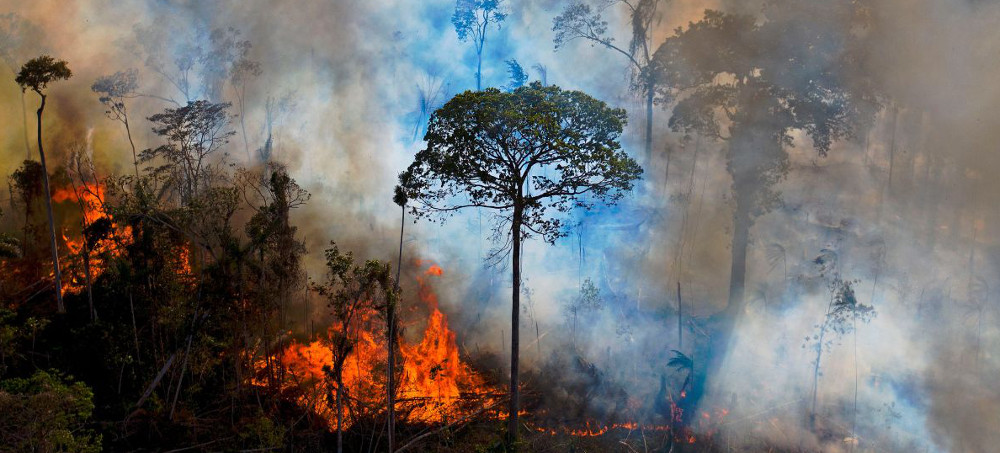 Smoke billows from a fire in an area of the Amazon rainforest near Porto Velho, Rondonia State, Brazil, September 2019. (photo: Getty)
Smoke billows from a fire in an area of the Amazon rainforest near Porto Velho, Rondonia State, Brazil, September 2019. (photo: Getty)
Peter Kalmus | Climate Scientists Are Desperate: We're Crying, Begging and Getting Arrested
Peter Kalmus, Guardian UK
Kalmus writes: "I'm a climate scientist and a desperate father. How can I plead any harder? What will it take? What can my colleagues and I do to stop this catastrophe unfolding now all around us with such excruciating clarity?"
On Wednesday, I risked arrest by locking myself onto an entrance to the JP Morgan Chase building in downtown LA. I can’t stand by – and nor should you
“Climate activists are sometimes depicted as dangerous radicals, but the truly dangerous radicals are the countries that are increasing the production of fossil fuels.”
– United Nations Secretary General Antonio Guterres
I’m a climate scientist and a desperate father. How can I plead any harder? What will it take? What can my colleagues and I do to stop this catastrophe unfolding now all around us with such excruciating clarity?
On Wednesday, I risked arrest by locking myself to an entrance to the JP Morgan Chase building in downtown Los Angeles with colleagues and supporters. Our action in LA is part of an international campaign organized by a loosely knit group of concerned scientists called Scientist Rebellion, involving more than 1,200 scientists in 26 countries and supported by local climate groups. Our day of action follows the IPCC Working Group 3 report released Monday, which details the harrowing gap between where society is heading and where we need to go. Our movement is growing fast.
We chose JP Morgan Chase because out of all the investment banks in the world, JP Morgan Chase funds the most new fossil fuel projects. As the new IPCC report explains, emissions from current and planned fossil energy infrastructure are already more than twice the amount that would push the planet over 1.5°C of global heating, a level of heating that will bring much more intense heat, fire, storms, flooding, and drought than the present 1.2°C.
Even limiting heating to below 2°C, a level of heating that in my opinion could threaten civilization as we know it, would require emissions to peak before 2025. As UN Secretary General Antonio Guterres said in the press conference on Monday: “Investing in new fossil fuel infrastructure is moral and economic madness.” And yet, this is precisely what President Biden, most other world leaders, and major banks are doing. It’s no exaggeration to say that Chase and other banks are contributing to murder and neocide through their fossil fuel finance.
Earth breakdown is much worse than most people realize. The science indicates that as fossil fuels continue to heat our planet, everything we love is at risk. For me, one of the most horrific aspects of all this is the juxtaposition of present-day and near-future climate disasters with the “business as usual” occurring all around me. It’s so surreal that I often find myself reviewing the science to make sure it’s really happening, a sort of scientific nightmare arm-pinch. Yes, it’s really happening.
If everyone could see what I see coming, society would switch into climate emergency mode and end fossil fuels in just a few years.
I hate being the Cassandra. I’d rather just be with my family and do science. But I feel morally compelled to sound the alarm. By the time I switched from astrophysics into Earth science in 2012, I’d realized that facts alone were not persuading world leaders to take action. So I explored other ways to create social change, all the while becoming increasingly concerned. I joined Citizens’ Climate Lobby. I reduced my own emissions by 90% and wrote a book about how this turned out to be satisfying, fun, and connecting. I gave up flying, started a website to help encourage others, and organized colleagues to pressure the American Geophysical Union to reduce academic flying. I helped organize FridaysForFuture in the US. I co-founded a popular climate app and started the first ad agency for the Earth. I spoke at climate rallies, city council meetings, and local libraries and churches. I wrote article after article, open letter after open letter. I gave hundreds of interviews, always with authenticity, solid facts, and an openness to showing vulnerability. I’ve encouraged and supported countless climate activists and young people behind the scenes. And this was all on my personal time and at no small risk to my scientific career.
Nothing has worked. It’s now the eleventh hour and I feel terrified for my kids, and terrified for humanity. I feel deep grief over the loss of forests and corals and diminishing biodiversity. But I’ll keep fighting as hard as I can for this Earth, no matter how bad it gets, because it can always get worse. And it will continue to get worse until we end the fossil fuel industry and the exponential quest for ever more profit at the expense of everything else. There is no way to fool physics.
Martin Luther King Jr said, “He who accepts evil without protesting against it is really cooperating with it.” Out of necessity, and after exhaustive efforts, I’ve joined the ranks of those who selflessly risk their freedom and put their bodies on the line for the Earth, despite ridicule from the ignorant and punishment from a colonizing legal system designed to protect the planet-killing interests of the rich. It’s time we all join them. The feeling of solidarity is a wonderful balm.
As for the climate scientists? We’ve been trying to tell you this whole time.
READ MORE
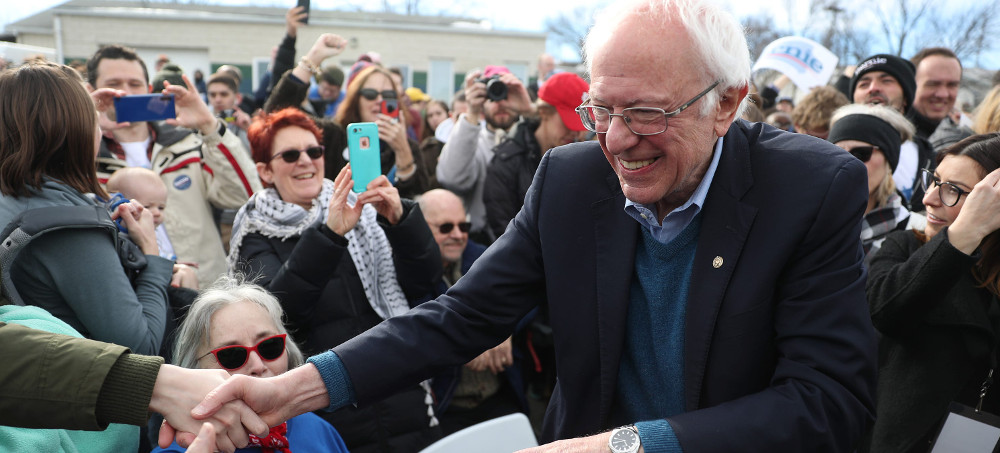 Senator Bernie Sanders joined a rally last month of Kellogg workers, who have been on strike since early October. (photo: Jim West/Zuma Press)
Senator Bernie Sanders joined a rally last month of Kellogg workers, who have been on strike since early October. (photo: Jim West/Zuma Press)
Sanders Pushes for 95 Percent Tax on Corporate 'Windfall' Profits
Aris Folley, The Hill
Folley writes: "Senate Budget Committee Chairman Bernie Sanders (I-Vt.) on Tuesday made a push for a bill that seeks to levy a 95 percent tax on windfall profits of companies that bring in more than $500 million in revenue annually."
Senate Budget Committee Chairman Bernie Sanders (I-Vt.) on Tuesday made a push for a bill that seeks to levy a 95 percent tax on windfall profits of companies that bring in more than $500 million in revenue annually.
Sanders highlighted reports detailing higher profits made by companies like Exxon Mobil and Tyson Foods during the pandemic.
“Is it appropriate that during this pandemic, during the war in Ukraine, during all of this instability, that this be a moment in which large corporations continue to enjoy huge profits?” Sanders said in opening remarks during a Budget Committee hearing on inflation.
The legislation introduced by Sanders would apply to companies’ profits that are in excess of their average profit level seen in the five years leading up to the pandemic, according to a a summary provided by his office.
Ahead of the midterm elections, a number of Democrats have pinned blame on corporate greed for rising costs, as inflation rates have hit heights not seen in four decades.
Sen. Lindsay Graham (S.C.), the ranking Republican on the committee, called the idea of a windfalls profit tax “a disaster” and blamed inflation on Biden administration policies such as the $1.9 trillion coronavirus relief package that passed Congress last year without GOP support.
“We’re trying to get our economy back on its feet after dealing with COVID throughout the world, and what I would say is that the best cause for inflation lives in the policy choices of this administration, more than any single thing,” he said.
Sen. Chuck Grassley (R-Iowa) also accused Democrats of “misdiagnosing the cause of inflation,” arguing “the current focus on so-called corporate greed risks taking us down the failed road of the 1970s-style price controls and windfall profits tax.”
Robert Reich, a former Labor secretary and leading figure on the left, pointed to oil companies in arguing that a windfall profits tax “is exactly what is needed right now.”
“When oil companies, for example, are showing, as they are, historical profits, they are making huge amounts of money. They are raising prices at the pump at the same time. They don’t need to raise those prices,” Reich testified.
“A large portion of that money is going to executives and major investors, so you want a windfall profits tax that stops them from doing that and actually rebates that money to consumers,” he added.
The hearing arrives as inflation has emerged as a key campaign issue ahead of the coming midterm elections, with Republicans and Democrats taking opposing positions on how to address rising prices.
At the close of the hearing on Tuesday afternoon, Sanders reiterated focus “on inflation taking place at the same time as we’re seeing record breaking profits.”
“We’re seeing record-breaking levels of stock buybacks. We’re seeing high dividends. We are seeing and living through a moment in American history where the people on top are doing phenomenally well, while working people are struggling,” Sanders said.
READ MORE
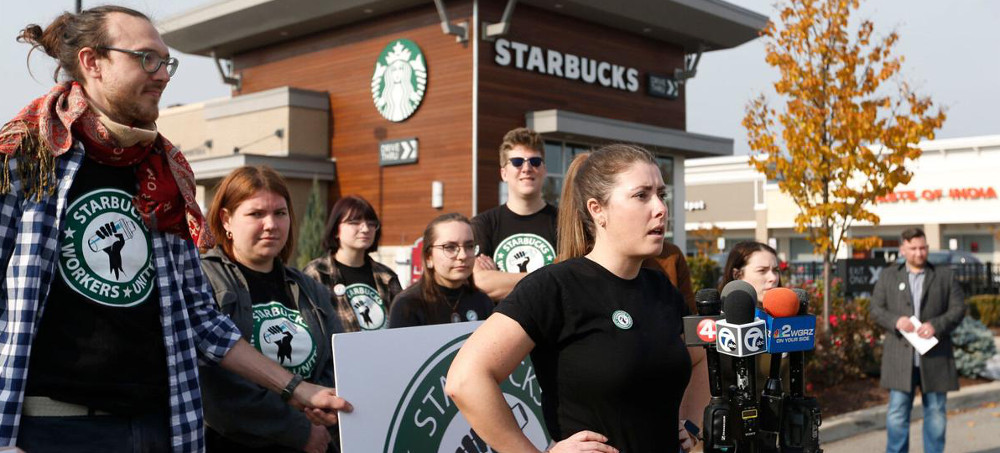 Starbucks Workers United, a Buffalo-area group of Starbucks employees, holds a news conference outside the store at Sheridan and Bailey to announce that three more stores have petitioned for a union election, Tuesday, Nov. 9, 2021. (photo: Sharon Cantillon)
Starbucks Workers United, a Buffalo-area group of Starbucks employees, holds a news conference outside the store at Sheridan and Bailey to announce that three more stores have petitioned for a union election, Tuesday, Nov. 9, 2021. (photo: Sharon Cantillon)
Starbucks Is Desperate to Stop Unionization, So It's Firing Worker Leaders
Laila Dalton, Jacobin
Dalton writes: "Starbucks is firing worker activists as it seeks to blunt the momentum of the union drive sweeping the company."
Starbucks is firing worker activists as it seeks to blunt the momentum of the union drive sweeping the company. Jacobin spoke to worker Laila Dalton, who was fired just weeks after the NLRB issued a complaint against Starbucks for retaliating against her.
Starbucks is waging a war on its workers. The coffee chain has brought back founder Howard Schultz to lead the effort to defeat a union drive that is still spreading across the country, and that workers allege is flagrantly violating federal law as it seeks to slow their momentum. Currently, 176 Starbucks locations have filed for National Labor Relations Board (NLRB) elections since the first union campaign at a corporate-owned store in the United States went public in Buffalo, New York last year.
Starbucks is favoring a particular method: firing union leaders. Workers at several stores say they have been terminated in retaliation for legally protected union activities. Early allegations came in Memphis, Tennessee in February, when Starbucks fired seven workers after they announced their union drive. The company has said that the workers were fired on the pretext of workplace conduct violations, and while Starbucks Workers United has filed unfair labor practice (ULP) charges against the company alleging retaliation, the understaffed NLRB has yet to make a judgment, and the workers remain without their jobs.
In recent days, with Schultz back at the helm — and, bizarrely, attempting to assuage worker unrest by announcing that the company is “going to be in the NFT business” — the firings appear to have accelerated. Several union leaders in Buffalo have been fired or forced out. Three workers have been fired in Overland Park, Kansas, where the remaining workers are now on strike. And on Monday, Laila Dalton, the nineteen-year-old Starbucks barista in Phoenix, Arizona whose prior claims of retaliation were substantiated by the NLRB mere weeks ago, lost her job.
As in the case of the other recent terminations, Starbucks says that Dalton was fired for violating company policies, telling the Independent that she was “written up numerous times for behavior that is not reflective of the company’s mission and values.” The company has pointed specifically to her recording interactions with management “without their consent, which is against the law in Arizona.” This despite Arizona being a one-party consent state. [According to the Reporters Committee for Freedom of the Press, recording a conversation without a person’s knowledge is permitted in Arizona as long as there is consent from “at least one party to the conversation.”]
But Dalton and her coworkers say her termination was retaliation. In the days leading up to her firing, Dalton had been voicing her fears about such an outcome on social media and had mentioned increasing harassment and surveillance at her store during a conversation with Jacobin just weeks ago. It is rare for a company to violate the law in such a high-profile case — evidence that Starbucks is desperate to blunt workers’ momentum.
In a conversation with Jacobin’s Alex N. Press, Dalton explains how she was fired, what has happened since, and what she expects going forward. After all, her store is now voting on unionization, with ballots due back to the NLRB by April 19. The transcript has been edited for length and clarity.
ANP: What happened on Monday?
LD: About an hour after Howard Schultz had begun his town hall, I was fired. My shift started at 12:30 PM, and at 1:20 PM, I saw the district manager and another district manager. Now, on Saturday, I’d gotten harassed by two district managers as well. That day, they asked me if I have ever recorded [a phone call or video] without anyone’s consent — even though Arizona is a one-party consent state. At that time, they’d told me I was under another investigation. Almost every time we meet, there’s a new investigation, and never any follow-up on the prior ones.
Every time my district manager asks to talk with me, I always say, “Am I going to get fired today?” And she always says, “You’re not going to get fired today.” But when I said it on Monday, she didn’t say that. She said, “Let’s just have a conversation.” So, I had the feeling that they were going to fire me.
I started recording, as I always do, and the first thing she did was give me a final written warning. That warning was about an alleged violation of a COVID procedure in January, on a day when I wasn’t working but had come into the store to pick up a friend. Weirdly, this final written warning said that it was created on March 18, but it wasn’t given to me until April 4.
Right after they gave me that final written warning, they gave me the next sheet of paper, which was a notice of separation, and it was for totally different reasons. It was because I recorded without anyone’s permission. The write-up says, “Your conduct not only violates Starbucks policy. It also raises concerns under Arizona state law and interferes with the operations of our store. This conduct would constitute grounds for separation in and of itself, even without considering your history of corrective action. This serves as Leila Dalton’s notice of separation of employment.”
Meanwhile, I’ve been so public in the media. I’ve told them that I’m always recording, not that I’d need their permission under Arizona law. They clearly don’t know the law and it was clearly retaliation: it was the day before our ballots went out and it was an hour after Howard got in.
ANP: You’ve filed another ULP charge with the NLRB over your termination, and it’s incredibly bold for a company to terminate a person who was so recently the face of a prior sustained complaint. Plus, some of the things Starbucks was investigating you for are just totally strange — I saw the video you recorded in which an ethics and compliance officer seems to ask if you’re too quick to call coworkers racist, even though you’re the only black employee at your store. What do you expect to happen next?
LD: I’m ready to be reinstated, even though I know that might take two to three months. But Starbucks’s reputation will be totally ruined. My union rep has always said that the more public you are, the safer you are, and I have always been very public. But even though I was in those videos from More Perfect Union, they kept harassing me and writing me up. It’s not smart. I did not expect it and I would have thought that if they were to fire me, it would have been after the election. Starbucks doing it the day before our ballots come out might end up with them having to forfeit the election if we lose because it’s clear intimidation. It affects workers when they fire the most outspoken person.
ANP: Ballots are out now, and you and your coworkers just held a rally to demand your reinstatement. How was that, and how do your coworkers feel?
LD: My coworkers were in shock, and really upset and outraged. No one saw this coming, not even me, and it’s just making them want to unionize more. Of course, Starbucks is going to go with intimidation tactics, but today, we came out to our rally and had a great turnout. We raised so much attention that, according to my coworker, the two managers at the store were hiding by the bathroom, making calls.
Then, my district manager showed up along with someone who we don’t know but who looks like they’re from corporate. So, we were bringing a lot of attention. Now they’re starting to pull workers one by one, asking them about the election. I’m not sure of the questions yet, but I’ve been told that my district manager is pulling everyone aside to try to talk to them about the election and about why I was separated.
ANP: You said this retaliation might backfire, with workers wanting a union now more than ever, and that reminds me of the Amazon union campaign in Staten Island. Amazon called the cops on Chris Smalls, the president of the Amazon Labor Union, and organizers say that backfired, leading more workers to vote for the union. What do you think about that victory?
LD: I was in shock when I heard the news. Because I’m going through it, I can feel for the Amazon people. I’m realizing how corrupt these big companies are. Those workers have been going through it, and they got their victory. Seeing how Amazon spent more than $4 million trying to union-bust last year, I can only imagine how much Starbucks is spending on us and the lengths they’re going to in an effort to stop this union.
But everything they’re doing is winning more people to the union. I think with people in my generation going through this and posting about it on social media, people are realizing that their best friends are getting treated horribly. A lot of my friends never knew Starbucks was like this. They just expect the whole food industry to be a struggle. Once I tell them how much Starbucks can give us, they realize that we shouldn’t be allowing them to treat us like this.
They can afford to pay us more, to give us more benefits, and to treat us better, but they don’t because they’re greedy. That shows that they don’t care about us, that they see us as just bodies and a source of investment. So, this definitely encourages people to want to have a voice and figure out ways to have a voice, which is by unionizing.
This is the start of a new era. Definitely. I see unions being a big thing for our generation, and I’m so excited that people want to stand up for themselves and are ready to be treated more fairly.
READ MORE
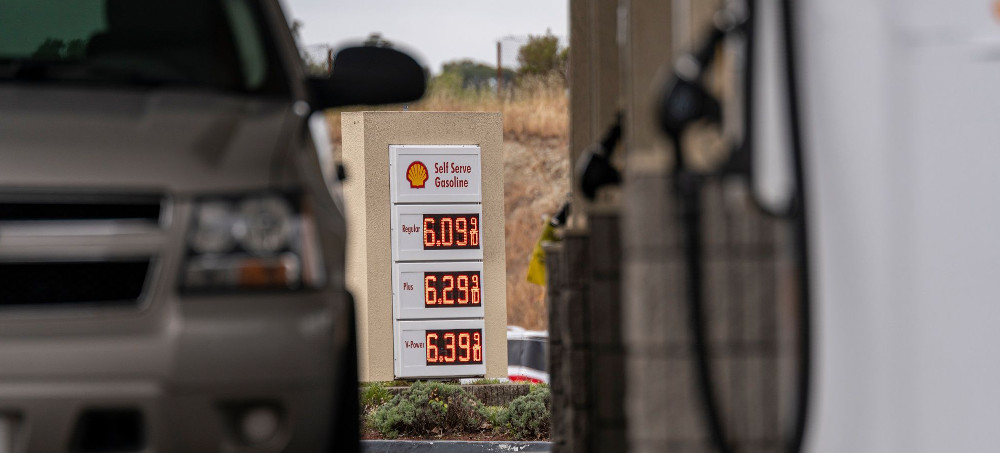 A Shell station in Hercules, Calif., on March 29. (photo: David Paul Morris/Bloomberg)
A Shell station in Hercules, Calif., on March 29. (photo: David Paul Morris/Bloomberg)
Big Oil Companies Are Using Wartime Profits to Enrich Investors, Report Says
Maxine Joselow, The Washington Post
Joselow writes: "The nation's biggest oil and gas companies have significantly increased stock buybacks and dividends since Russia invaded Ukraine in late February, raising questions about whether the firms are using wartime profits to enrich investors instead of curbing Americans' pain at the pump."
Good morning and welcome to The Climate 202! Our friends at the Capital Weather Gang reported that climate change may be increasing the frequency of “false springs," and we can certainly relate here in D.C., where the cherry blossoms have given way to cold again. 🤷♀️ But first:
Exclusive: Big oil companies are using wartime profits to enrich investors, report says
The nation’s biggest oil and gas companies have significantly increased stock buybacks and dividends since Russia invaded Ukraine in late February, raising questions about whether the firms are using wartime profits to enrich investors instead of curbing Americans’ pain at the pump, three liberal advocacy groups write in a new report shared exclusively with The Climate 202.
The report released today by Friends of the Earth, Public Citizen and BailoutWatch turns up the heat on the fossil fuel industry ahead of two high-profile congressional hearings this week, when Democrats plan to scrutinize the industry's windfall profits amid rising crude prices sparked by the war in Ukraine.
The three groups looked at Securities and Exchange Commission filings and public statements from the 20 largest U.S.-headquartered oil and gas companies, including Chevron, ConocoPhillips, Devon Energy, EOG Resources and ExxonMobil.
The groups' analysis focused on buybacks, which often raise a company's stock price, rewarding its shareholders. Critics say that buybacks inflate executive compensation while doing nothing to improve a company's products and services. The groups also examined dividends, the quarterly payments that investors receive for owning shares.
The main findings:
- In January and February, seven companies' boards authorized their corporate treasuries to buy back and retire $24.35 billion in stock — a 15 percent increase over all of the buybacks authorized in 2021. Six of those decisions came in February, after fears of Russian aggression against Ukraine lifted stock prices. In total, the 20 companies announced $45.6 billion in stock buybacks since the start of 2021.
- More than half of the companies boosted their dividends in January and February. Of the 11 companies raising their dividends, nine were increases of more than 15 percent and four were increases of more than 40 percent.
- Six companies have started paying additional dividends on top of their routine quarterly payments, including by implementing new “variable dividends” based on company earnings.
“This is a master class in war profiteering. Humanitarian disaster and consumer pain are being turned into Wall Street profits in real time,” Lukas Ross, program manager at Friends of the Earth and co-author of the report, told The Climate 202.
One could argue that boosting payouts to investors could be a net positive for the climate, should those investors choose to reinvest their money in renewable energy companies rather than fossil fuel firms. But Alan Zibel, research director at Public Citizen and another co-author of the report, questioned whether that scenario was realistic.
“I wouldn't necessarily count on investors who collect oil dividends to foster the green energy transition,” Zibel said.
Spokespeople for the oil companies did not immediately respond to requests for comment.
Oil executives in the hot seat on the Hill
The analysis comes after top Democrats on the House Oversight Committee yesterday sent a letter to executives at ExxonMobil, BP America, Chevron and Shell urging them to use their surging profits to help lower gas prices and invest in clean energy.
“Big Oil must immediately stop profiteering off the crisis in Ukraine,” says the letter from House Oversight Chair Carolyn B. Maloney (D-N.Y.) and Oversight Subcommittee on Environment Chair Ro Khanna (D-Calif.).
Meanwhile, the Senate Commerce, Science and Transportation Committee will hold a hearing at 10 a.m. Eastern today titled “Ensuring Transparency in Petroleum Markets.”
- The Commerce committee originally invited the executives of ExxonMobil, BP and Pioneer Natural Resources to testify at the hearing, but all three companies declined to appear in person. A committee aide told The Climate 202 that the panel still hopes to host the executives at a later date.
- In the meantime, the committee today will hear from Robert McCullough of McCullough Research, an energy consulting firm. He was one of the first people to voice concerns about Enron, the Texas energy company that declared bankruptcy in 2001 after revelations of accounting fraud and inflated profits.
- Republicans invited as their witness Kathleen Sgamma, president of the Western Energy Alliance, a trade group that advocates for oil and gas production in the West.
The House Energy and Commerce Committee also still plans to hold a hearing Wednesday featuring the executives of six fossil fuel firms and titled “Gouged at the Gas Station: Big Oil and America’s Pain at the Pump.”
International climate
The world is running out of options to reach climate goals, U.N. report shows
After decades of inaction on climate change, the world is on track to speed past a crucial target of limiting global temperature rise to 1.5 degrees Celsius (2.7 degrees Fahrenheit) by 2030, 278 of the world's top scientists said Monday in the latest U.N. Intergovernmental Panel on Climate Change report, The Washington Post's Sarah Kaplan and Brady Dennis report.
Despite the planet already being pushed into unprecedented territory, with ravaged ecosystems and rising sea levels, the scientists said it’s still possible for nations to have a shot at limiting global warming — but humans must halve greenhouse gas emissions in the next eight years.
The report's authors cautioned, however, that this goal “cannot be achieved through incremental change.” Instead, securing a less catastrophic future requires an almost immediate “societal transformation,” they wrote.
The nearly 3,000-page document marks the IPCC’s first assessment of Earth's remaining strategies for climate action since the 2015 Paris agreement. It details how coordinated efforts to deploy more renewable energy, overhaul transportation systems, restructure cities, and pull carbon from the air could put the planet on a more sustainable path while improving living standards around the globe.
On the Hill
Sens. Manchin, Cramer oppose SEC climate risk rule, saying it targets fossil fuel companies
In separate letters, Sens. Joe Manchin III (D-W.Va.) and Kevin Cramer (R-N.D.) wrote to the Securities and Exchange Commission opposing its proposed climate disclosure rule, which was announced last month and would require all publicly traded companies to disclose their greenhouse gas emissions and the risks they face from climate change in a standardized way for the first time.
Manchin, a key Democratic vote on climate policy, wrote to the SEC on Monday that the proposed rule is beyond the agency's authority, and that such policies will add “undue burdens on companies,” specifically those in the fossil fuel industry, Pippa Stevens reports for CNBC.
Meanwhile, Cramer led Republican members of the Senate Banking and Environment and Public Works committees in a letter this morning calling on SEC Chair Gary Gensler to withdraw the rule.
“After failed attempts to enact radical climate policy via legislation, this rule is yet another example of the Biden Administration’s efforts to have unelected bureaucrats implement its preferred agenda through regulation,” the senators wrote in the letter.
The SEC's proposed rule is in a 60-day public comment period.
Agency alert
Administration unveils plan for improving school infrastructure
Vice President Harris on Monday announced an action plan to invest in the nation's public school infrastructure, including by helping schools make energy efficiency retrofits and switch to electric buses.
The plan, which leverages investments from the bipartisan infrastructure law, spans several federal agencies:
- The Energy Department released a request for information for a $500 million grant program to make schools more energy efficient, thereby lowering their energy costs and improving air quality for students and teachers.
- The Environmental Protection Agency launched online resources to help school districts prepare for a $5 billion clean school bus program created by the infrastructure law. The program aims to avoid diesel exhaust from bus tailpipes, which produces pollutants that can aggravate asthma in children.
Pressure points
Climate change could cost the federal government $2 trillion a year by 2100, White House says
Extreme weather events fueled by climate change could cost up to $2 trillion each year from the nation’s federal budget by the end of the century, according to a first-ever assessment released Sunday from the White House Office of Management and Budget, Timothy Gardner reports for Reuters.
"Climate change threatens communities and sectors across the country, including through floods, drought, extreme heat, wildfires, and hurricanes (affecting) the U.S. economy and the lives of everyday Americans," Candace Vahlsing, an OMB climate and science official, and its chief economist Danny Yagan, said in a blog post. "Future damages could dwarf current damages if greenhouse gas emissions continue unabated."
The assessment, which came hours before the new U.N. Intergovernmental Panel on Climate Change report, found that the federal government could spend an additional $25 billion to $128 billion a year on climate-related expenditures such as coastal disaster relief; flood and crop insurance; and wildfire suppression.
Extreme events
Cold snap in Europe breaks records and stuns spring crops
A record-setting April cold snap has hit Europe for the second year in a row, with temperatures falling 20 to 30 degrees below normal, triggering harsh frosts and shocking early blooming plants in multiple countries, The Post's Jason Samenow and Kasha Patel report.
The bout of cold weather comes after warmer-than-normal temperatures in recent weeks that prompted a rapid greening of vegetation in the region. Climate scientists say that frequent warming in the late winter months could be increasing the rate of “false springs,” which make crops more vulnerable to the threat of frigid temperatures after blooming.
Some research also shows that climate change may exacerbate cold spells in certain times and places because of more erratic jet stream behavior even if winters are globally warmer, although the notion is under debate in the scientific community.
Viral
And now here's some good zebra-related news after all of that dark climate news:
READ MORE
Special Coverage: Ukraine, A Historic Resistance
READ MORE
Contribute to RSN
Follow us on facebook and twitter!
Update My Monthly Donation
PO Box 2043 / Citrus Heights, CA 95611
